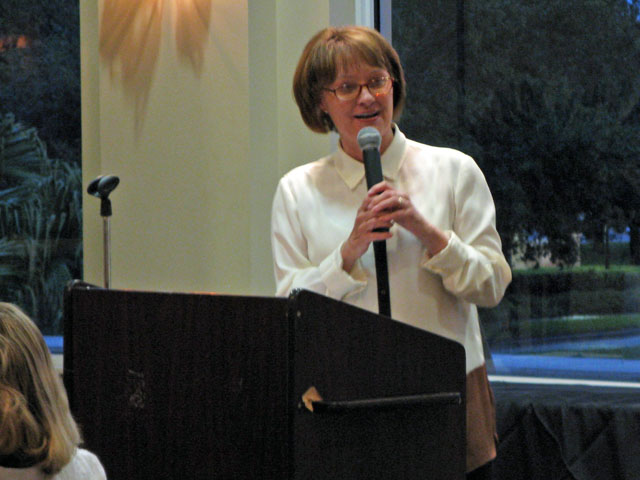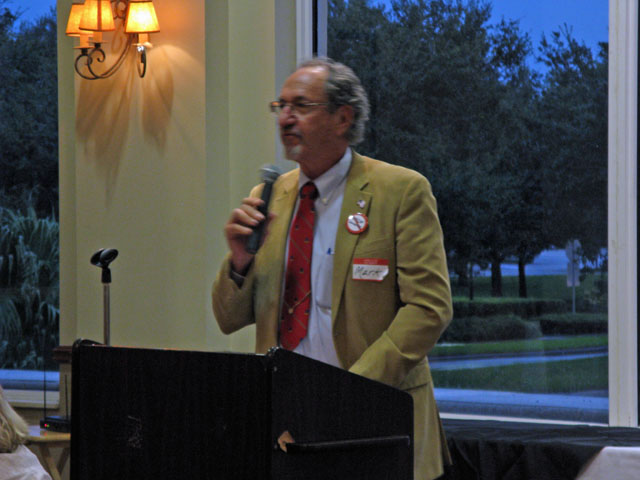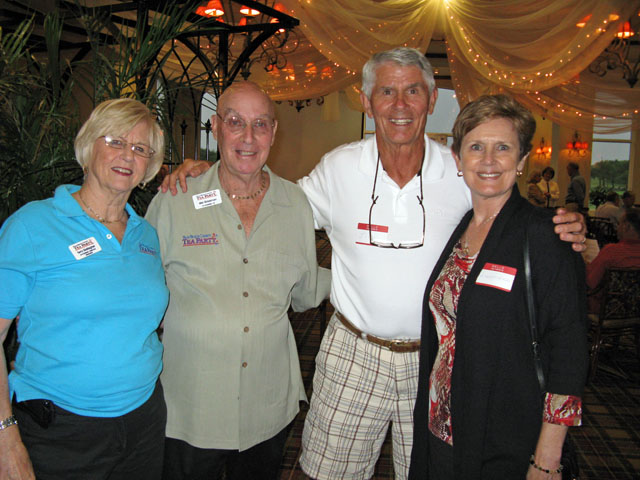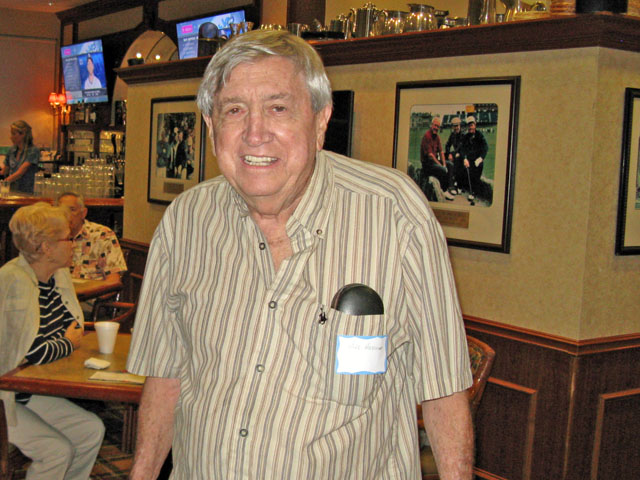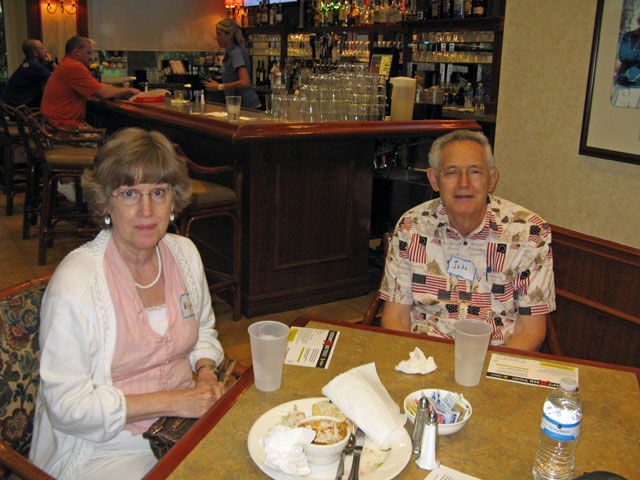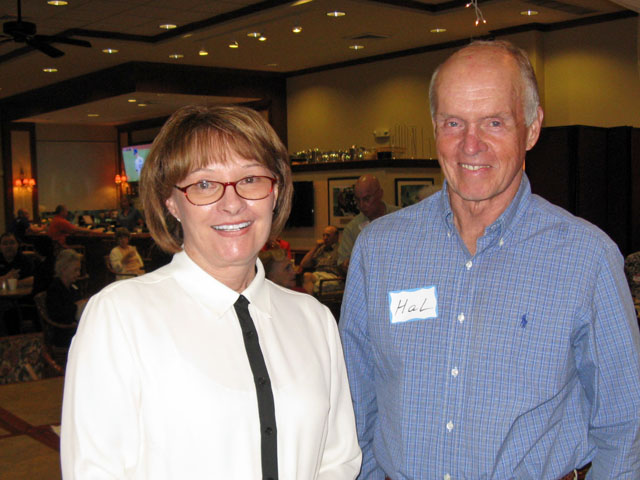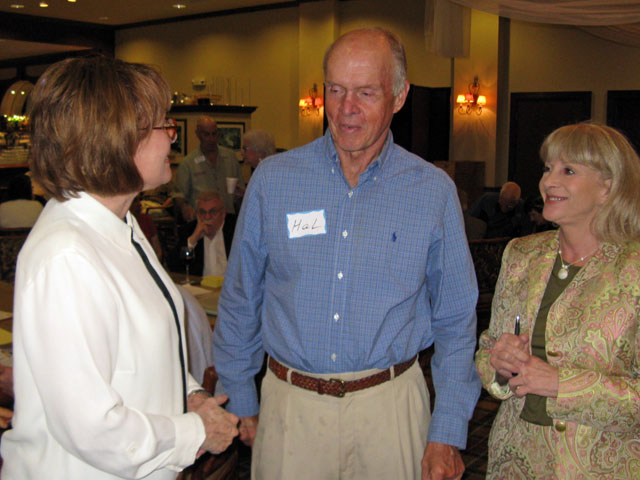In Jupiter, Seven50 Presentation Becomes Town Hall
Posted by Fred Scheibl on October 8, 2013 · Leave a Comment
Last evening, the Jupiter chapter hosted a presentation by Phyliss Frey of the American Coalition 4 Property Rights, on the regional planning protocol known as “Seven50”.
Background: The title stands for “Seven Counties, 50 Years”, and is a work product in the area of “Regional Plans for Sustainable Development”, funded by a $4.6M HUD grant in 2010. A consortium, the developers of Seven50 formed the “South Florida Regional Partnership” to help create, support and implement the plan. Participants include local governments and NGOs (Non-Governmental Organizations) through membership in the Treasure Coast Regional Planning Council (TCRPC) and the South Florida RPC. The plan attempts to address how to manage an expected 50% growth in population (from 6M to 9M) in the seven target counties of Indian River, St. Lucie, Martin, Palm Beach, Broward, Miami-Dade, and Monroe. They have analyzed housing density, mass transit, diversity, planning and zoning and other regional attributes. The underlying assumption is a future of global climate change and rising sea levels, scarcity of energy and water, and challenges to “food security” among other things. The group’s proposals are considered advisory by many of the city and county jurisdictions that indirectly support it. Their work product can be viewed at seven50.org
Our guest speaker is a leader in the movement to challenge this planning protocol, and along with others associated with the American Coalition 4 Property Rights and many tea party activists, sees regional planning consortiums (they are all over the country, spurred on by HUD grants) as a threat to our way of life.
In her presentation, Ms. Frey used several very professional videos to make the case that the Seven50 plan would move us toward “stack ’em and pack ’em” high rise dwellings, the end of the suburbs, clusters of development along rail routes and elimination of local and county planning and zoning authority in favor of super-regional control.
Going back to the origins of “Sustainable Development” starting with the UN “Agenda 21”, she profiled the federal government’s role in implementation, starting with an executive order by George H. W. Bush, and expansion through every administration since. The Obama team has ratcheted it up a notch, using the EPA (Environmental Protection Agency) and HUD (Dept. of Housing and Urban Development) to promulgate a set of rules that require “neighborhood diversity” defined racially rather than economically, limits on resource use, and strings attached to federal grants flowing to local communities.
A test case and clear warning bell is provided by Westchester County, NY. A video of County Executive Rob Astorino, describing the federal lawsuits that county is struggling with, and his vow to fight back against federal overreach was a most compelling argument.
Invited to the meeting to hear the “other” side of the issue were our district 1 county commissioner Hal Valeche, Mayor Bert Premuroso and Councilman Joe Russo of Palm Beach Gardens. After the speaker made the point several times that MOUs (“Memorandums Of Understanding”) executed by local commissions and councils have limited their defense against the attacks on the local planning and zoning autonomy, Commissioner Valeche thought he needed to set the record straight. Taking the microphone to explain that the PBC commission is not constrained by Seven50 or the TCRPC, but look to groups like that as consultants and advisors. Some issues really need a regional perspective he said – like inter-county rail projects or large developments near county borders. He used the example of Avenir – the proposed development for the Vavrus Ranch in Palm Beach Gardens, as an example where TCRPC is being asked to help by collecting input from the region’s residents about such a large development in the western county.
Gardens councilman Joe Russo expanded on that, and explained that regional planning really did have a hand in developments like Abacoa, but state law has changed and it is now local rules that prevail. The Avenir development will be a decision for the Gardens Council, not the TCRPC.
Both Valeche and Russo left us with the impression that these kind of radical proposals as discussed by the speaker can happen, but only if we (and our local elected officials) let it.
At this point the meeting had become a “Town Hall” with both Hal and Phyliss taking questions from the audience.
Many were not buying that Seven50 was not a major threat though, and several called for Hal to get the PBC commission to “opt out” of Seven50, much the way that Indian River County and the city of Vero Beach have. Hal declined, saying such a motion would not pass in the current commission, and although this may be an issue in the future, currently he does not see it as an immediate issue in Palm Beach County. At one point it got raucus enough that Joel Channing, a PBCTP member who is close to the Gardens Council and is a leader in the PGA Corridor Association, made the point that “these guys are really heros” (the commissioner and councilmen) and were being unfairly criticized.
Also present at the meeting were candidates for CD18 Ellen Andel and Ilya Katz, CD21 candidate (against Ted Deutch) Henry Colon, and Senate 32 candidate Brandon Cannon (a Republican challenging Joe Negron).

